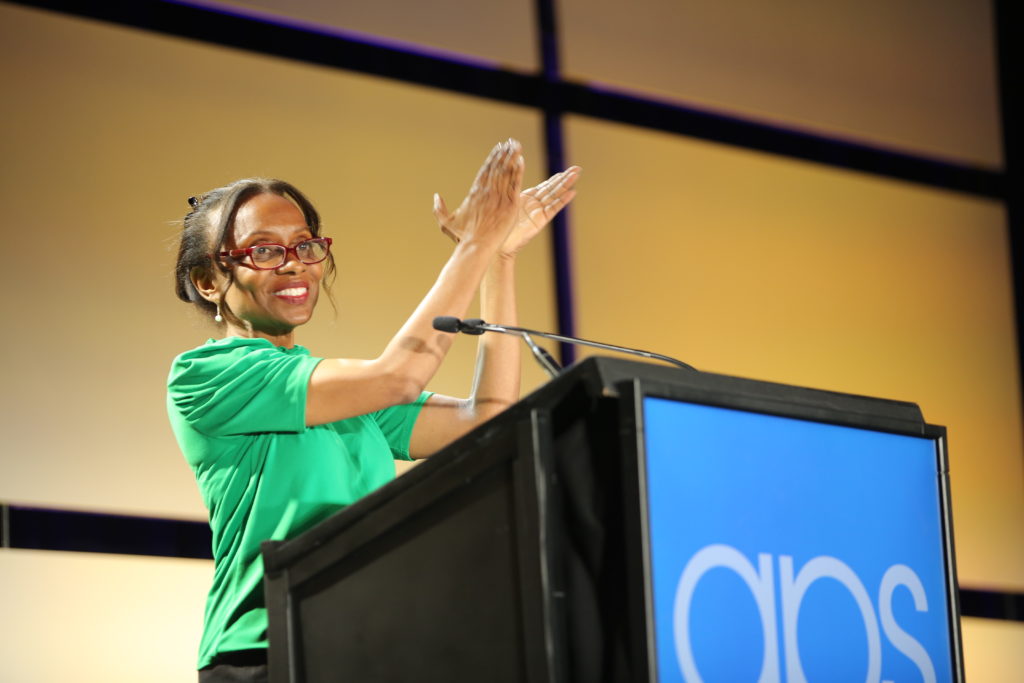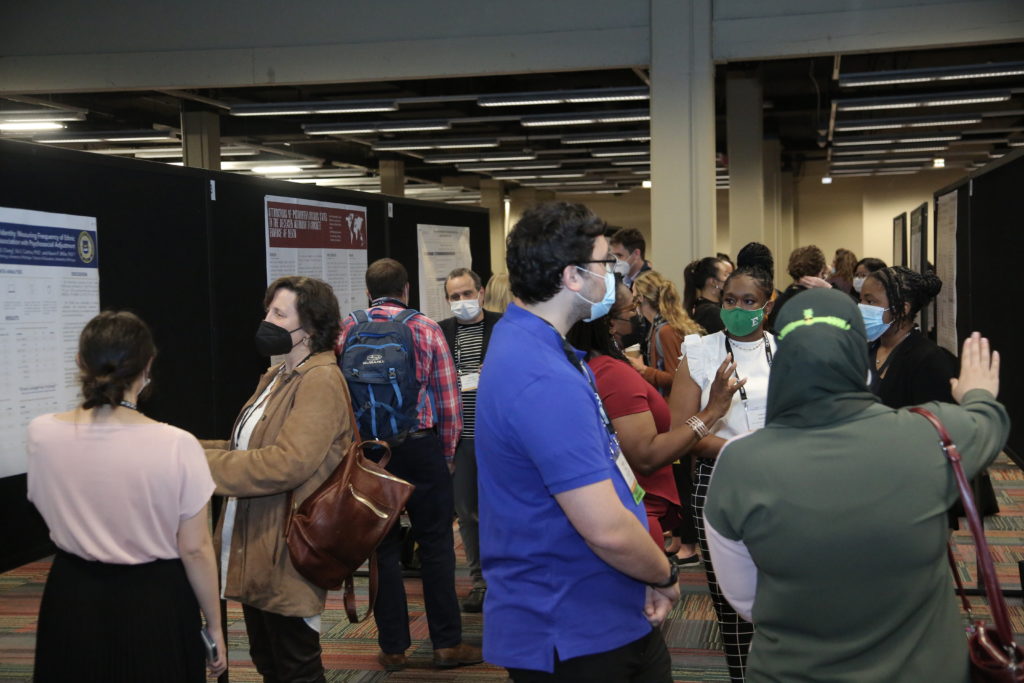Photo above: Keynote speaker Bryan Stevenson is a public-interest lawyer who founded and is executive director of the Equal Justice Initiative, a human rights organization in Montgomery, Alabama.
Human behavior in all its dimensions is in the spotlight at the 2022 APS Annual Convention in Chicago, where more than 2,500 psychological scientists from all over the world are exploring a wide variety of issues at the forefront of societal well-being, including structural inequality, substance abuse and addiction, sexual and emotional health, research related to COVID-19, and the impact of misinformation and how to fight it.
The convention, APS’s first in-person event since the pre-pandemic year of 2019, is at the Chicago Hyatt Regency until Sunday, May 29. Diverse speakers, from students to early-career researchers to tenured professors, will deliver approximately 1,600 presentations in all, including poster discussions, “flash talks,” multi-presenter panel discussions, and plenary addresses.

The opening keynote Thursday night featured Bryan Stevenson, a public-interest lawyer who founded the Equal Justice Initiative (EJI), a human rights organization in Montgomery, Alabama, that has won major legal challenges overturning excessive and unfair sentences, exonerating innocent death row prisoners, confronting abuse of the incarcerated and the mentally ill, and aiding children who have been prosecuted as adults. In a moving and deeply personal talk, “American Injustice, Mercy, Humanity, and Making a Difference,” he called upon psychological scientists and APS to “change the narrative” of science denial, fear, and anger that threaten justice and equality.
Stevenson was introduced by APS President Jennifer L. Eberhardt. When she stepped into the role of APS’s leader, she anticipated significant challenges. “We were navigating through a pandemic, polarization was on the rise, we were in a moment of political upheaval. That much was true, and it still is true,” she said. “But instead of stepping back during a global pandemic, APS came to the fore. Our organization has served as a catalyst for advancing the field and in providing leadership to policymakers, researchers, educators, and institutions across disciplines and across borders. We should all be very proud of these achievements.”

Prior to the opening keynote Thursday, APS 2022 sessions included a panel exploration of how COVID-19 has dramatically reframed the workplace, hands-on workshops on research methods, sessions on teaching psychology (cosponsored by the Society for the Teaching of Psychology), and sessions featuring both the research of “rising stars” within clinical science and leading clinical scientists’ visions of the grand challenges facing the field.
Psychological scientists will address dozens of other topics in the days ahead. Highlights include a panel discussion exploring the power of psychological science to help curb police violence, with a “place-based” emphasis on lessons from the host city of Chicago. In addition, special media briefings Friday and Saturday morning will feature 11 short presentations selected as particularly compelling and relevant, including one on the impact of school violence on children, families, and communities. Other topics explored in the two news briefings will include fake news and misinformation, the impact of the COVID-19 pandemic on education, tools to support ethnic and gender minorities, stress in the operating room, and romance and relationships.
Stay tuned for much more coverage of APS 2022. In the meantime, follow events in real time on Twitter—@PsychScience, hashtag #apschi22.
